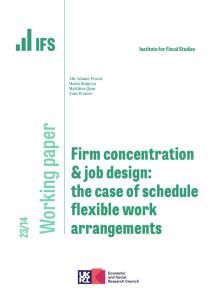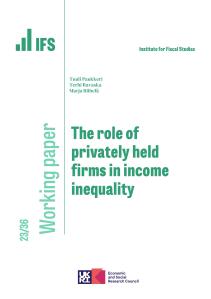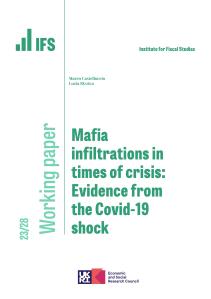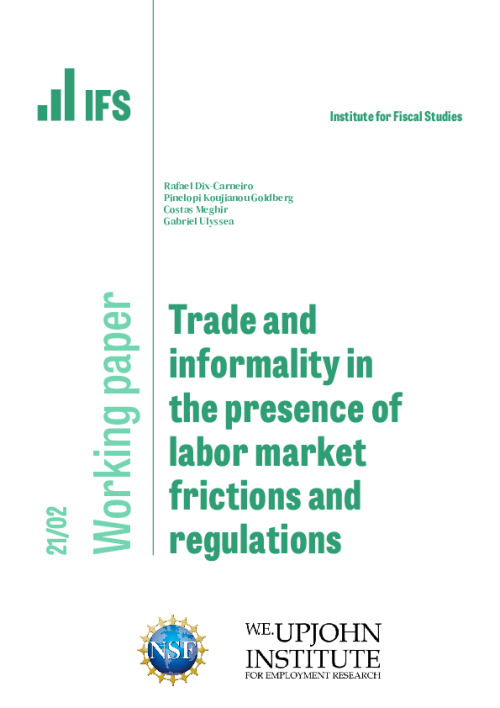Downloads
We build an equilibrium model of a small open economy with labor market frictions and imperfectly enforced regulations. Heterogeneous firms sort into the formal or informal sector. We estimate the model using data from Brazil, and use counterfactual simulations to understand how trade affects economic outcomes in the presence of informality. We show that: (1) Trade openness unambiguously decreases informality in the tradable sector, but has ambiguous effects on aggregate informality. (2) The productivity gains from trade are understated when the informal sector is omitted. (3) Trade openness results in large welfare gains even when informality is repressed. (4) Repressing informality increases productivity, but at the expense of employment and welfare. (5) The effects of trade on wage inequality are reversed when the informal sector is incorporated in the analysis. (6) The informal sector works as an “unemployment," but not a “welfare buffer" in the event of negative economic shocks.
Authors

Research Fellow Yale University
Costas is a Research Fellow of the IFS and a Professor of Economics at Yale University and a Visiting Professor at University College London.

Research Fellow Yale University
Pinelopi is a Research Fellow and the Elihu Professor of Economics and an Affiliate of the Economic Growth Center at Yale University.

Rafael Dix-Carneiro

Research Fellow University College London
Gabriel is an Associate professor at the Department of Economics at University College London, and a Research Fellow at the IFS.
Working Paper details
- DOI
- 10.1920/wp.ifs.2021.221
- Publisher
- The IFS
Suggested citation
Dix-Carneiro, R et al. (2021). Trade and informality in the presence of labor market frictions and regulations. London: The IFS. Available at: https://ifs.org.uk/publications/trade-and-informality-presence-labor-market-frictions-and-regulations (accessed: 3 May 2024).
More from IFS
Understand this issue

If you can’t see it, you can’t be it: role models influence female junior doctors’ choice of medical specialty
24 April 2024

Retirement is not always a choice that workers can afford to make
6 November 2023

How did parents’ experiences in the labour market shape children’s social and emotional development during the pandemic?
1 August 2023
Policy analysis

Progression of nurses within the NHS
12 April 2024

Regional variation in earnings and the retention of NHS staff in Agenda for Change bands 1 to 4
10 April 2024

Recent trends in public sector pay
26 March 2024
Academic research

Firm concentration & job design: the case of schedule flexible work arrangements
6 April 2023

The role of privately held firms in income inequality
29 November 2023

Mafia infiltrations in times of crisis: Evidence from the Covid-19 shock
9 October 2023
